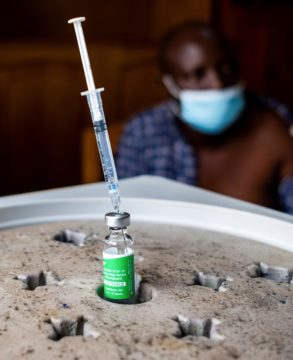Cameron J. Sabet, Alessandro Hammond, Simar S. Bajaj, and Belson Rugwizangoga at Think Global Health:
 The people of Rwanda have been tested by tragedy. Nearly thirty years ago, when ethnic Hutu extremists sought to exterminate the country’s Tutsi minority, more than one million lives were lost. The violence strained the nation’s fragile health-care system, which was already inaccessible to rural residents, who made up 83 percent of the population.
The people of Rwanda have been tested by tragedy. Nearly thirty years ago, when ethnic Hutu extremists sought to exterminate the country’s Tutsi minority, more than one million lives were lost. The violence strained the nation’s fragile health-care system, which was already inaccessible to rural residents, who made up 83 percent of the population.
When the COVID-19 struck, it encountered a decidedly different health-care system. Although Rwanda reported more than 33,194 cumulative cases and 1,468 deaths, it also weathered the pandemic uniquely well. The country was prepared to allocate vaccines by region as soon as donations from China and the United States began arriving in March 2021. Within two years, 82 percent of the population had received at least one dose, far outshining neighboring countries like Tanzania (52 percent), Uganda (41 percent), the Democratic Republic of Congo (10 percent), and Burundi (0.26 percent). Rwanda’s ability to bring everyone in the Ministry of Health and partner institutions together to track vaccination rates, reach communities most at risk, and dispel misinformation helped the nation become a world leader in the vaccine rollout.
What did Rwanda change between the genocide and the pandemic to improve its health-care accessibility, and what lessons can other low-income countries adopt to strengthen their own health-care systems?
More here.
